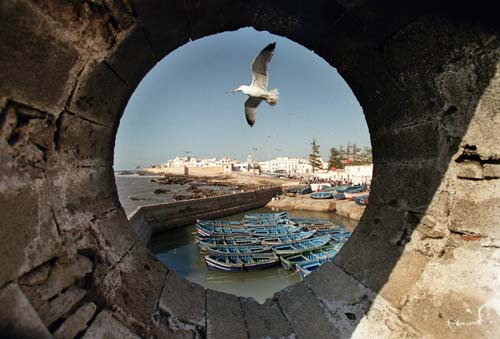Rural education offers Morocco's women the promise of a quiet revolution. Women in remote parts of Morocco are benefiting from a scheme that also teaches civil rights, numeracy and even beekeeping. Santorri Chamley, writing for The Guardian's Poverty Matters blog, reports from Beni Zuli.
 |
| Fatima Kadmire (left), one of the beneficiaries of the literacy programme for women in Beni Zuli Photograph: Santorri Chamley |
She is one of the beneficiaries of an accelerated literacy programme targeting rural women and girls in Zagora and other remote regions in Morocco as part of the national literacy strategy. The class she is enrolled in is run by the Association des Femmes pour le Développement et la Solidarité (Afdes). Afdes is part of Réseau Associatif pour le Développement et la Démocratie (Razded), an umbrella group of associations and NGOs established in 2007.
The organisation's aim is to strengthen the role of women in Zagora's economic development and democratic process, in partnership with the department for literacy. As well as the 300 hours they have to acquire basic reading, writing and numeracy skills, beneficiaries are given lessons in social and civil rights, development, environment and income-generating activities such as weaving, baking and beekeeping.
The Maison de Citoyenneté, or Citizenship House – a peach-coloured building opposite the mosque on Beni Zuli's main thoroughfare – is one of the first adult education community support centres in Morocco. It was built to help address one of the biggest barriers to education facing rural women and girls: lack of access to learning centres and middle schools (attended by 12- to 16-year-olds), which are usually located very far from home.
Beni Zuli, which has 18,000 inhabitants, is a beautiful village with traditional mud-brick houses. Like the rest of the province, it is flanked by the imposing Atlas mountains; its arid landscape is punctuated by a string of lush palm groves and oases. The village is one of the most remote in Zamora, which itself is a two-and-a-half hour drive along a narrow mountain road from the nearest airport, in Ouarzazate.
With more than 70% of its 280,000 population aged under 30, the province is among the programme's main target regions. One of the main objectives of the programme, which is enabling Kadmire and other rural women and girls to overcome deep-rooted cultural and traditional constraints, is integrated social and economic development. Post-literacy training will enable them to consolidate the literacy skills they acquire, preparing them to run micro-projects. Such help, which promises to lift rural women out of the cycle of illiteracy and poverty, is welcome.
In 2004, King Mohammed VI pushed through landmark reforms to the Mudawana family code against tough opposition from religious conservatives in 2004. The measures attempted to address a range of issues including underage marriage, women's rights, domestic violence, forced child labour and sexual trafficking.
Despite the reforms, however, many rural women remain second-class citizens. Almost 20,000 women and girls have benefited from the accelerated, state-funded literacy programme since it was introduced in Zagora in 2007. Its grants cover course fees, teacher-training and learning tools such as textbooks and pens.
Story and photograph: Santorri Chamley Read the full story here
SHARE THIS!
